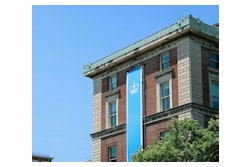 Committing to Diversity In International Affairs
Committing to Diversity In International Affairs
By Karen Jenkins
Black History Month reminds us that the struggle for equality and economic justice has been long and difficult. The confirmation of Dr. Condoleezza Rice as U.S. Secretary of State demonstrates how far the descendents of slaves and the marginalized in this country have come. The achievements of Rice are especially notable because she is an African-American woman who operates at the highest level of the U.S. government.
Ralph Bunche — a scholar, international statesman, Nobel Peace Prize recipient and also African American — helped pave the way for people like Rice and Colin Powell to obtain high-level diplomatic positions.
Named for the international statesman, the Ralph J. Bunche Center at Howard University is one academically based program that is promoting international affairs as well as working to increase diversity within the U.S. State Department and in the foreign service ranks.
Dr. Horace Dawson, former U.S. Ambassador to Botswana and director of the Bunche Center, says its purpose is to build on its long-time interest and involvement in international work at Howard.
“We seek to promote scholarship and research as well as training for careers in government and business through lectures, internships and study abroad,” Dawson says. “Howard has always been interested in diversity and the importance of increasing the presence of minorities in international affairs, especially the training of diplomats and foreign service officers. This seems especially appropriate since Ralph Bunche had such a distinguished career as a scholar at Howard and as a diplomat for the United States and the United Nations.”
An innovative program administered through the Bunche Center is the Charles Rangel Program in International Affairs. Funded four years ago through the efforts of U.S. Rep. Charles Rangel, D-N.Y., the program targets qualified students who want to pursue graduate degrees before entering foreign service with the U.S. State Department. With an emphasis on increasing diversity among foreign service officers, students planning to enter graduate school are eligible to apply. Once selected, students in the Rangel program are supported for two years of graduate study and placed in three internships. One summer is spent in the office of a congressman or woman who is involved in international affairs. And two semesters are spent working first at the State Department in Washington and then at a U.S. embassy abroad.
The program was conceived and supported by Rangel when Madeleine Albright was Secretary of State under President Bill Clinton and endorsed by Colin Powell when he succeeded Albright under President George W. Bush. Dawson is pleased that the Rangel Program in International Affairs and Howard have received bi-partisan support because of the importance of training a diverse group of foreign service officers.
The Bunche Center also features prominent and distinguished speakers from the many foreign embassies and multilateral organizations, such as the World Bank and World Trade Organization, which are based in Washington, as well as speakers from the State Department and other government agencies. Through the Center, Howard sends about 50 students on study-abroad programs each year to countries such as England, Brazil, France, South Africa and the Caribbean. The study-abroad program, targeted at undergraduates, provides opportunities for young people to live and study abroad as a part of their education towards a Howard degree. At the graduate level, Howard offers a certificate program in international affairs that focuses on training for foreign service.
Bunche started his academic career at Howard where he helped found the political science department. During World War II, he was reassigned from Howard to advise the State Department and the military on Africa and colonial areas of strategic importance. In 1946, he launched his U.N. career when the Secretary General “borrowed” him from the State Department to oversee the Department of Trusteeship, which covered the vast areas that were still under colonial rule. In 1950, Bunche was awarded the Nobel Prize for 11 months of mediation and ceaseless negotiation that led to armistice agreements between Israel and the Arab states.
Our new Secretary of State promised to use the power of her position to maintain international educational exchanges. And as she was being sworn in as Secretary of State, she stated her commitment to diversity in international affairs. We must hold her to that promise and support those institutions that are actively promoting international education.
Like Bunche, the achievements of Rice are to be applauded. But we need to ensure that many more minority students learn to speak other languages, are comfortable crossing borders and are able to empathize with people from other nations. We must ensure that Rice won’t be the last person of color to hold this top diplomatic position.
— Jenkins is former president of Brethren Colleges Abroad and an international education consultant.
© Copyright 2005 by DiverseEducation.com



















